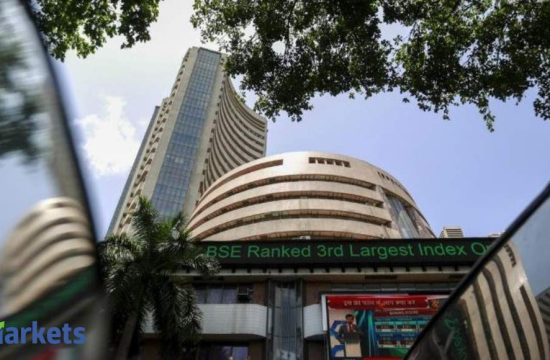
Investing into some of the large banks still makes sense and looks attractive from a medium-term point of view, says the Founder, Renaissance Investment Managers.
Do you think there is still an opportunity to get into Info Edge even at these levels even after the run up that the stock has seen?
Our hypothesis is slightly more longer term on the business. Info Edge is more of a five-year or ten-year investment because right drivers are in place. They are in different business verticals from Naukri, to property vertical 99acres and other investments including Zomato and PolicyBazaar.
All these businesses can deliver very strong growth over the next five-ten years. If investors are willing to have a five-year plus time horizon, they should just buy it and sit on it for a period of time.
Buy an Info Edge even at Rs 3,370?
Yes absolutely. You should look at the terminal value of the business which will be significantly higher than what the valuations today are. In the next 10 years, it will become a Nifty index stock in India. Just a caveat, we have vested interest in the stock as we own it.
What is your outlook on banks?
Some of the near term concerns in terms of moratorium has come to an end on 31st August. When we see the September quarter results, we will understand what will be the incremental NPAs that these banks will start reporting and whether they have made adequate provisions for that. The Street is afraid that the NPAs could turn out to be much higher than what it has been expecting.
Nifty is at an all-time high ex of banks. The banks have been a laggard. Our view is that incremental NPA will emerge in the sector but we do not think that will be very significant. The Street may get completely surprised and more importantly our view is that some of the larger banks might emerge stronger from the crisis. The sector will undergo some sort of consolidation because while the market has willingly given capital to some of these large banks where we have seen about $ 10-odd billion of capital raising.
Markets will not be so comfortable giving capital to some of the smaller franchises or the weaker banks which effectively means that the stronger banks will emerge stronger. I still think that probably from a medium term perspective investing into some of these large banks still makes sense and looks attractive from that point of view.
There are a lot of consumer companies and a lot of speciality chemical companies which are now trading at PE multiples of consumer companies. These are B2B businesses, which are being touted as beneficiaries of global trade. Do they deserve these PE multiples?
Whenever a sector goes through a super cycle of growth, we see significant multiple expansion in that sector. Go back to 1999-2000 when the IT sector was going through a phenomenal J-curve kind of growth where those companies were growing at 70-80 PE. All the IT services companies were B2B and continue to remain B2B and they were trading at 50-60-70 PE anyway higher at times.
While these are B2B businesses, due to the confluence of events that have happened, for the last few years, China itself was slowing down in terms of clamping down on their pollution norms and as a result, some of the manufacturing is gradually shifting to India. Due to this geopolitical realignment and this whole focus on Make in India, we are seeing a faster acceleration of that. If the sector can hold on to its growth potential which looks pretty likely in the medium to long term, valuations will remain rich and they might even expand further.
Is this just a coincidence or a cycle that with the exception of Tata Motors, almost all Tata Group companies are at an all time high?
I am a big believer in the group. What we have seen in the last three years is some sort of a renewed vigour and focus within the group. There is a significant amount of capital discipline that is emerging across the group.
Back in 2007 and 2008, in the middle of the last global financial crisis when the world was falling off the cliff, the Tata Group went and bought Corus at $ 10 billion of valuations and they bought JLR at $ 2.5 billion of valuations and we know what happened over the last 10 years. So obviously we had seen significant capital misallocation in the group 10 years back. But over the last three years, we have seen a very significant and razor sharp focus on capital allocation, efficiency and a very strong hunger and desire for growth across the group companies. That is also reflected in the performance of some of the group companies. In the case of Trent or Tata Consumer and some of the other companies, markets are taking cognisance of that and rewarding the companies for that.
Do you think within healthcare and diagnostics, we could see creation of a company where they have customer data and that could be used as a healthcare platform as opposed to just a pure play diagnostics or a hospital chain?
Some of them are already out there, they do not exist in the listed space but my view is the post Covid world, once all our lives get normalised will be very different from the pre Covid world and all of us will be using more of technology or significantly higher magnitude of technology in our daily lives than what we have been otherwise used to. That is why, technology platforms will do phenomenally well.
You have got a classic example of what happened with Zoom, it is just a 10-year old company and today the market cap of Zoom is higher than that of IBM which is a 100-year old company.
Once these platforms build scale, they become very valuable. I am sure a lot of these companies which today are in private domain will get listed at some point of time.
Do you find merit in investing in any of the PSU banks?
The business case for all these PSU banks is extremely weak from an investor’s point of view. I regret that because I think these were solid franchises 10 years back and they had significant strength when you looked at their businesses. But unfortunately, we have not taken the right policy action and business decisions with them and have let the franchise values erode.
I feel very pained because it is actually a loss of national income. If the government had handled PSU banks well, then they could have unleashed them in terms of giving them all flexibility and probably divested them.
The money raised from that divestment can be significantly higher than what their current values could have been to solve a lot of our national problems. At this point of time, the investment case for all the PSU banks is extremely weak because it is not just about valuations but there are many other issues in terms of how they will deal with the significant technology shift that is happening in the banking sector. Are they agile enough to deal with the crisis and have they made meaningful investments into technology and HR? I would say, no.
By that logic would you also steer clear from any PSU? There is a lot of buzz around divestment and we have seen some sporadic moves around BPCL, BHEL and BEL? Are these to be avoided as well?
For the time being, yes. I feel extremely pained because I think the inherent value of a lot of these businesses is significantly higher. A lot of these businesses are across oil and gas — be it a BPCL or HPCL or some of the engineering companies. Their inherent value can be much higher than what they are trading at.
Markets are very disappointed with the way the government has dealt with those stocks and that is why we have seen a very significant de-rating across the sector. Having said that, being a diehard bull, I would want to give that last hope, divestment a chance as it is a great opportunity.
When Margret Thatcher in the UK started divesting the state-owned companies, a lot of these companies became multi baggers. As the old saying in investing goes, when the queen is selling a diamond, you should not walk away. Let us see if the government really goes ahead with its divestment plan. There could be significant opportunities for investors.
What is your view on some of the steel majors?
We are completely avoiding this space because it is a very high beta and highly volatile space. Though some of these companies can do well over a period of time, given the significant high volatility that exists in the stocks and also in inherent business as well. We are completely avoiding them.
Any other midcap gem like Info Edge that our investors could look at?
India is a high growth economy and there are enough companies which will continue to deliver very superior growth for a long period of time. There are enough of those companies. We like a lot of them across healthcare, consumer and given our demographics, a lot of these sectors have long-term drivers of their growth in place which effectively means businesses which execute well can keep delivering superior growth despite economic shocks or economic cycles and as an investor if we can invest in few of them, our job is done.
I am pretty excited about the whole internet space as a whole because there will be significant change in the technology landscape in the next decade.
Would you want to give us some names?
So with the mandatory disclosure that we own a lot of these names, we like Reliance from a medium to longer term perspective, because it is a phenomenal platform across telecom, internet and retail and we think the value of the platform over the years can be very significant.
I understand that the stock has done exceedingly well over the last six months or so. The inherent or the embedded value of the platforms can still be significantly higher than where the business is today. Likewise there are other names across technology we like as well.









